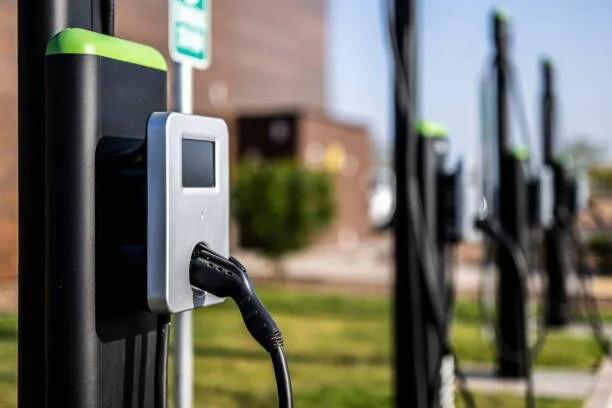EV Charging Stations and Property Value: A Smart Investment for the Future
Introduction
As a leading professional EV charger manufacturer in China, Topper Company provides dependable electric vehicle charging equipment and comprehensive charging solutions.
The rise of electric vehicles (EVs) is transforming more than just the automotive industry—it’s reshaping the real estate landscape. As EV adoption accelerates, demand for accessible, reliable charging infrastructure has surged. This presents a unique opportunity for property owners and investors to increase asset value by installing EV charging stations.
In the short term, EV charging stations offer immediate value: they attract high-earning tenants and visitors, generate new revenue streams, and qualify for government incentives. Over the long term, they future-proof properties and support broader sustainability goals. However, these incentives are temporary—making now the ideal time to invest.
The Role of Incentives in EV Infrastructure Growth
In the U.S. and Canada, incentive programs have been pivotal in accelerating early-stage EV infrastructure deployment. These include:
- Federal Tax Credits (U.S.): Covering a percentage of installation costs
- Provincial Rebates (Canada): Offering grants for equipment and installation
- Utility Programs: Discounted rates or rebates for qualifying EV infrastructure
As EV charging becomes more widespread, these incentives are being phased out. For property owners, this creates a limited window to capitalize on financial support before costs rise.
How EV Charging Stations Boost Property Value
1. Attracting High-Value Tenants and Clients
EV charging stations appeal to environmentally conscious and tech-savvy demographics—often high-income tenants, visitors, and businesses. Commercial spaces equipped with chargers are more likely to attract sustainable brands, retailers, and eco-focused companies.
2. Creating New Revenue Streams
Property owners can monetize charging stations by:
- Charging usage fees (per kWh or per hour)
- Increasing foot traffic to retail spaces
- Offering premium charging as an amenity
Over time, this generates passive income and increases property yield.
3. Leveraging Incentives for Higher ROI
Government incentives reduce upfront installation costs, accelerating the payback period. Acting early allows owners to take full advantage of rebates, tax credits, and low-interest financing before these programs expire.
4. Increasing Property Marketability and Value
EV charging is becoming a must-have feature. Properties equipped with EV infrastructure enjoy:
- Higher resale and rental values
- Enhanced appeal in green building certifications (e.g., LEED points)
- Stronger positioning in competitive real estate markets
5. Supporting Sustainability Goals
Many corporations, municipalities, and institutions have climate action plans. Providing EV charging aligns properties with environmental objectives, enhancing their brand, social responsibility profile, and tenant satisfaction.
Commercial Properties: Short- and Long-Term Advantages
Short-Term Benefits
- Tenant Attraction: High-income tenants, especially those in tech or professional services, are drawn to EV-ready buildings.
- Foot Traffic and Loyalty: Retail businesses benefit from longer dwell times and repeat visits from EV drivers.
- Rebates and ROI: Cost-saving programs improve return on investment from day one.
Long-Term Advantages
- Future-Proofing Assets: As EVs become mainstream, buildings without charging infrastructure may lose value or require costly retrofits.
- Lower Expansion Costs: Early infrastructure (e.g., conduit and electrical capacity) simplifies future charger upgrades.
- Market Differentiation: Properties with EV infrastructure stand out in leasing and sales markets, especially as green mandates grow.
Residential Real Estate: Increasing Home Appeal and Value
1. Appealing to EV Owners
Homes with EV charging stations are increasingly in demand. Buyers are willing to pay more for homes offering the convenience of home charging—especially in markets where public infrastructure is limited.
2. Staying Ahead of Regulations
New building codes in many cities require EV-ready parking. Installing chargers now ensures compliance and saves on future retrofitting costs.
3. Boosting Resale Value
Studies show that homes with EV charging sell faster and for more money, especially in urban and suburban areas with rising EV adoption rates.
EV Charging and Green Building Certifications
Installing EV charging stations can contribute to certifications like:
- LEED (Leadership in Energy and Environmental Design)
- BREEAM
- WELL Building Standard
These certifications add tangible value, reduce operating costs, and increase building prestige—particularly for institutional investors or tenants with ESG mandates.
The Shrinking Incentive Window: Act Now
Incentive programs have significantly reduced the cost of installing EV charging stations, but they won’t last forever. As infrastructure adoption rises, many governments are scaling back subsidies or imposing stricter eligibility requirements.
By acting now, property owners and developers can:
- Reduce upfront investment
- Maximize long-term value
- Gain a competitive edge in an increasingly electrified world
Conclusion
EV charging stations are no longer a luxury—they're a strategic asset that enhances both commercial and residential property value. For commercial buildings, they attract premium tenants, generate revenue, and support sustainability goals. For homeowners, they future-proof the property and increase market appeal.
With EV adoption growing rapidly and government incentives starting to wind down, the time to invest is now. Whether you're a real estate investor, commercial developer, or homeowner, installing EV charging stations is a future-ready decision that delivers lasting financial and environmental returns. Know more about Google SEO Directory





Comments